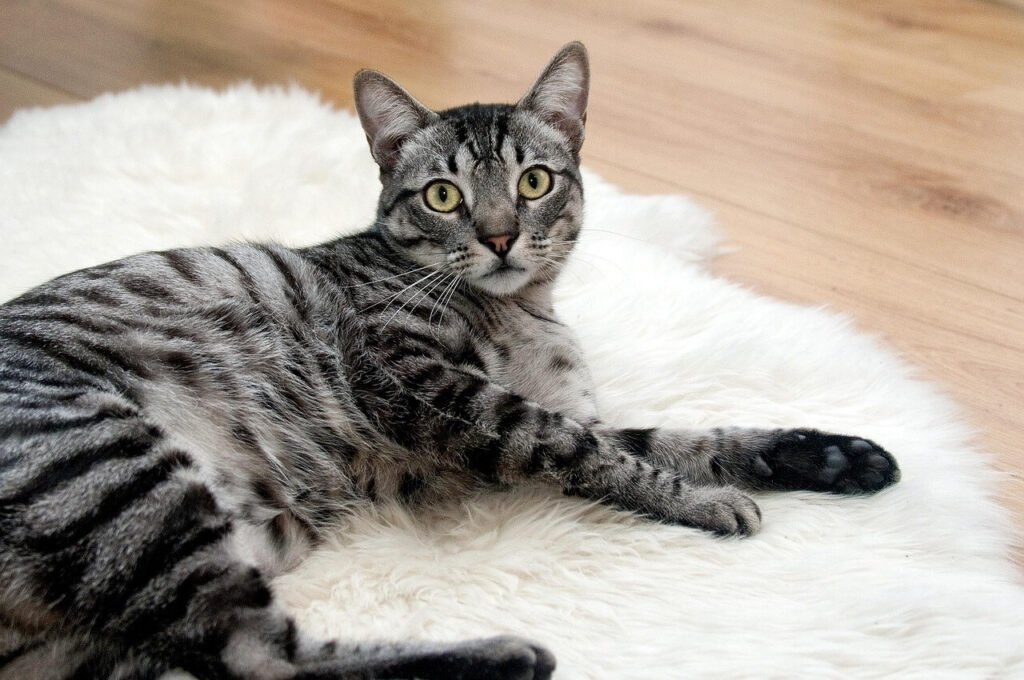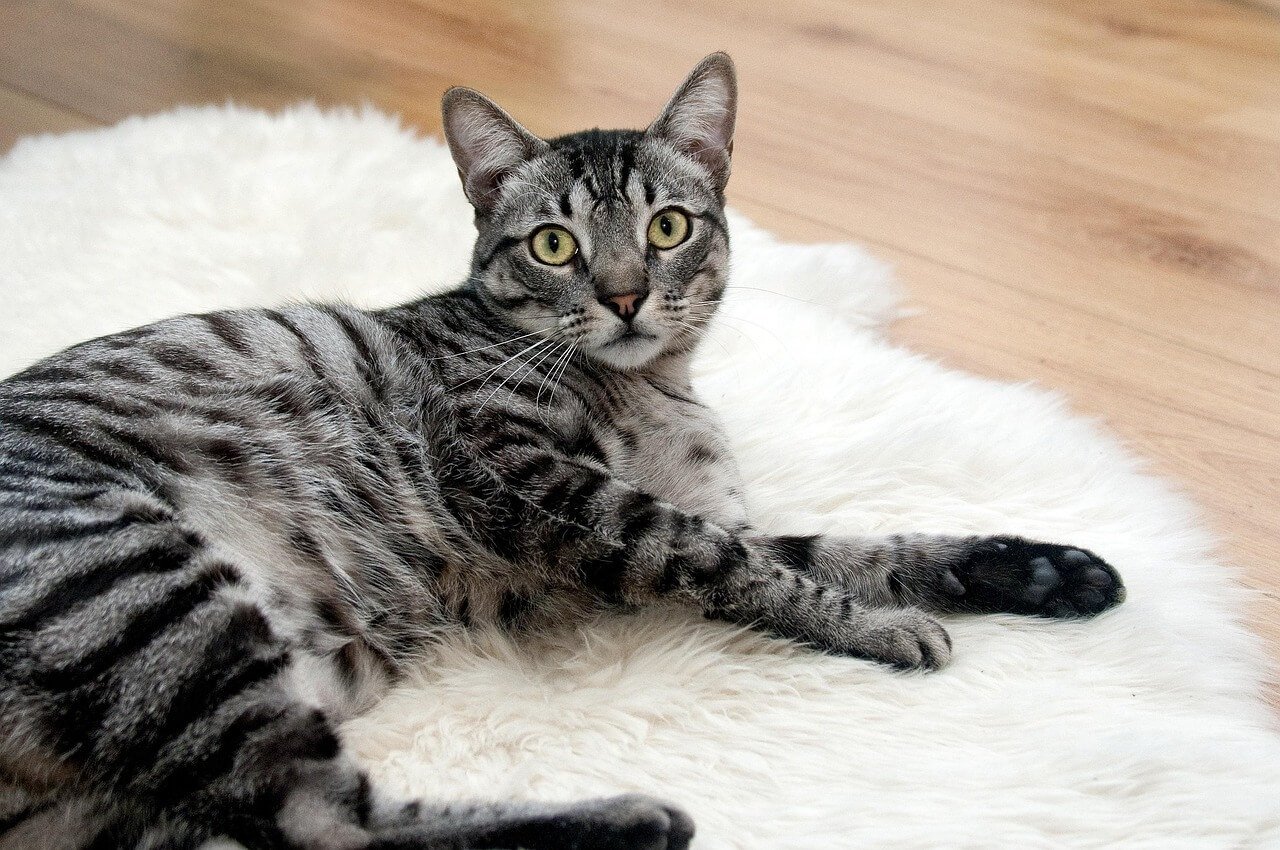My Cat Keeps Scratching But Doesnt Have Fleas: What’s Going On?
If your cat is scratching incessantly but doesn’t have fleas, you might be left wondering what’s causing their discomfort. While fleas are a common culprit behind excessive scratching, there are many other potential reasons for this behavior. Cats are naturally fastidious groomers, but when scratching becomes persistent or obsessive, it could indicate an underlying issue that needs attention. In this article, we’ll explore the possible causes of scratching in cats without fleas, how to identify the problem, and what steps you can take to help your feline friend feel more comfortable.
Why Is My Cat Scratching? Possible Reasons Beyond Fleas
Even if your cat doesn’t have fleas, several other factors could be causing them to scratch excessively. Understanding these potential triggers is the first step toward addressing the issue effectively.
Allergies :
Cats can develop allergies to food, pollen, dust mites, or cleaning products, leading to itchy skin.Dry Skin :
Low humidity or poor nutrition can cause dry, flaky skin that irritates your cat.Stress or Anxiety :
Emotional distress can manifest as overgrooming or scratching behaviors.Skin Infections :
Bacterial or fungal infections, such as ringworm, may cause itching and irritation.Parasites Other Than Fleas :
Mites, lice, or other parasites can also lead to scratching despite the absence of fleas.
By identifying the root cause of your cat’s scratching, you can take targeted action to alleviate their discomfort. If the issue persists, consulting a veterinarian is always a wise decision.
Why Is My Cat Scratching? Possible Reasons Beyond Fleas
Even if your cat doesn’t have fleas, several other factors could be causing them to scratch excessively. Understanding these potential triggers is the first step toward addressing the issue effectively.
Allergies :
Cats can develop allergies to food, pollen, dust mites, or cleaning products, leading to itchy skin.Dry Skin :
Low humidity or poor nutrition can cause dry, flaky skin that irritates your cat.Stress or Anxiety :
Emotional distress can manifest as overgrooming or scratching behaviors.Skin Infections :
Bacterial or fungal infections, such as ringworm, may cause itching and irritation.Parasites Other Than Fleas :
Mites, lice, or other parasites can also lead to scratching despite the absence of fleas.
By identifying the root cause of your cat’s scratching, you can take targeted action to alleviate their discomfort. If the issue persists, consulting a veterinarian is always a wise decision.
Check this guide 👉Top 5 Ultimate Cat Scratching Posts for Pure Feline Joy!
Check this guide 👉Understanding Cat Skin Conditions: Best 7 Health Tips!
Check this guide 👉Why is My Cat Scratching the Wall? Best 7 Health Tips!

Possible Causes of Scratching | Solutions to Try at Home |
|---|---|
Allergies | Switch to hypoallergenic food or bedding |
Dry Skin | Use a humidifier and ensure proper hydration |
Stress or Anxiety | Provide calming toys or pheromone diffusers |
Skin Infections | Clean affected areas gently with vet advice |
Parasites Other Than Fleas | Consult a vet for parasite-specific treatments |
Steps You Can Take to Help Your Scratching Cat Feel Better
Once you’ve identified the likely cause of your cat’s scratching, there are several measures you can take to provide relief. Here are some actionable tips to improve your cat’s comfort:
Improve Their Diet :
Feed high-quality, nutrient-rich food to support healthy skin and coat.Use Medicated Shampoos :
Bathe your cat with veterinarian-recommended shampoos designed for sensitive skin.Introduce Omega-3 Fatty Acids :
Supplements like fish oil can promote skin health and reduce inflammation.Minimize Stressors :
Create a calm environment by maintaining routines and providing safe spaces.Regular Vet Check-Ups :
Schedule routine visits to catch and treat any emerging issues early.
These steps can make a significant difference in reducing your cat’s scratching and improving their overall well-being. Consistency is key to seeing results.
Proactive Steps to Keep Your Cat Comfortable and Scratch-Free
Prevention is always better than cure. By taking proactive measures, you can minimize the chances of your cat developing excessive scratching habits in the future.
Maintain Regular Grooming :
Brush your cat’s fur regularly to remove loose hair and prevent matting.Keep Their Environment Clean :
Vacuum frequently and wash bedding to reduce allergens and irritants.Monitor Changes in Behavior :
Pay attention to shifts in your cat’s habits, as they may signal underlying issues.Provide Mental Stimulation :
Engage your cat with toys and activities to reduce boredom-related stress.Avoid Harsh Chemicals :
Use pet-safe cleaning products to avoid irritating your cat’s skin.
By incorporating these preventive practices into your routine, you can help ensure your cat stays happy, healthy, and free from unnecessary scratching.
How Your Home Environment May Be Affecting Your Cat’s Skin
Sometimes, the root of your cat’s scratching lies in their surroundings. Environmental factors can irritate their skin or trigger allergic reactions, leading to excessive scratching. Identifying and addressing these issues can make a significant difference in your cat’s comfort level.
Dust and Dander :
Accumulated dust and dander can irritate sensitive skin and cause itching.Strong Scents :
Air fresheners, candles, or cleaning products with strong odors may aggravate your cat’s respiratory system and skin.Temperature Extremes :
Excessive heat or cold can dry out your cat’s skin, making it more prone to irritation.Pollen Exposure :
Seasonal allergies to pollen can lead to itchy skin, especially during spring and summer.Unsanitary Litter Boxes :
Dirty litter boxes can harbor bacteria or allergens that affect your cat’s skin health.
By minimizing these environmental triggers, you can create a safer and more comfortable space for your cat. Small changes can often yield big improvements in their well-being.
When Scratching Is More Than Just Physical: Behavioral Insights
Not all scratching stems from physical ailments; sometimes, behavioral issues are to blame. Cats express emotions like stress, anxiety, or boredom through actions such as scratching or overgrooming. Understanding these behavioral patterns can help you address the root cause effectively.
Boredom :
Lack of mental stimulation can lead to obsessive behaviors, including scratching.Territorial Stress :
Changes in the household, such as new pets or visitors, may cause territorial anxiety.Separation Anxiety :
Cats left alone for long periods may scratch as a way to cope with loneliness.Routine Disruptions :
Moving furniture, renovations, or schedule changes can unsettle your cat.Attention-Seeking Behavior :
Some cats scratch excessively to gain their owner’s attention or affection.
Addressing behavioral causes often involves enriching your cat’s environment and providing emotional support. With patience and consistency, you can help your cat feel more secure and reduce unnecessary scratching.
Gentle Solutions: Natural Ways to Calm Your Cat’s Itching
If your cat’s scratching is due to mild skin irritation or dryness, natural remedies can provide relief without the need for harsh chemicals. These gentle solutions are safe and easy to incorporate into your cat’s care routine.
Coconut Oil :
Applied sparingly, coconut oil can moisturize dry skin and reduce irritation.Oatmeal Baths :
A diluted oatmeal solution can soothe itchy skin and reduce inflammation.Aloe Vera Gel :
Pure aloe vera (free of additives) can hydrate and heal irritated areas.Herbal Teas :
Cool chamomile or green tea compresses can calm inflamed skin.Probiotics :
Adding probiotics to your cat’s diet can improve gut health and reduce allergic reactions.
While natural remedies can be effective, always consult your vet before trying new treatments, especially if your cat has underlying health conditions. These gentle approaches can complement professional care and enhance your cat’s comfort.
Frequently Asked Questions About Cats Scratching Without Fleas
Why is my indoor cat scratching if they don’t go outside?
Indoor cats can still develop allergies, dry skin, or stress-related issues that cause scratching.
Can food allergies cause my cat to scratch?
Yes, food allergies often manifest as skin irritation and excessive scratching.
Should I use over-the-counter anti-itch sprays for my cat?
It’s best to consult your vet before using any products, as some may not be safe for cats.
How do I know if my cat has a skin infection?
Look for redness, scabs, or unusual odors; a vet can confirm the diagnosis.
Can stress alone cause my cat to scratch?
Yes, stress or anxiety can lead to overgrooming and scratching behaviors.
Final Thoughts: Supporting Your Cat Through Scratching Challenges
If your cat keeps scratching but doesn’t have fleas, it’s essential to dig deeper to uncover the underlying cause. Whether it’s allergies, dry skin, stress, or another factor, understanding the root of the problem empowers you to take meaningful action. With patience, care, and possibly some professional guidance, you can help your feline companion find relief and return to their happy, healthy self. Remember, every cat deserves to live free from discomfort—and with a little effort, you can make that a reality for yours.
Do Cats Have Taste Buds? Best 7 Expert Tips! – Discover how cats experience flavors and why their taste is so unique.
Do Dogs Have Taste Buds? Best 7 Expert Tips! – Discover how dogs experience taste, their preferences, and what it means for their diet and health.
Can Cats Taste Sweet? Best 7 Expert Tips! – Discover why cats can’t taste sweetness, how it affects their diet, and tips to keep them healthy and happy.
Can Dogs Taste Sweet? Best 7 Expert Tips! – Discover how dogs perceive sweetness, which foods are safe, and tips to manage their sweet cravings responsibly.





